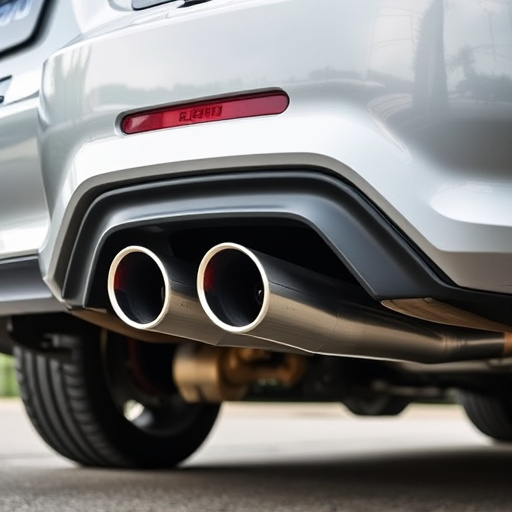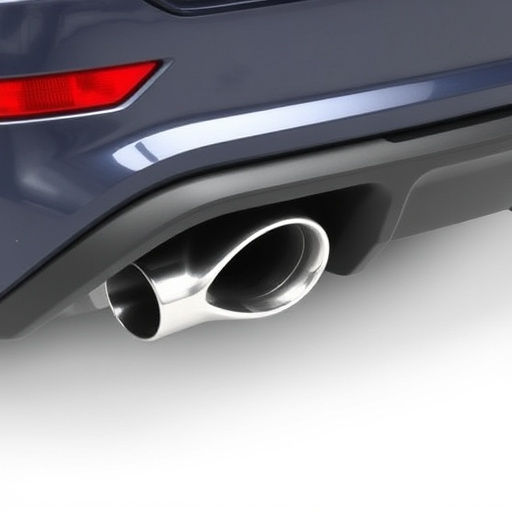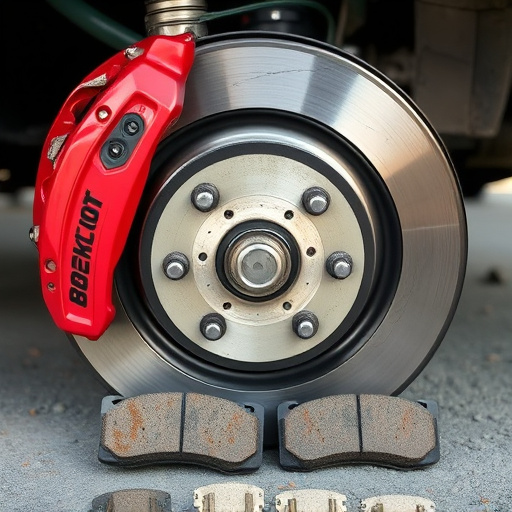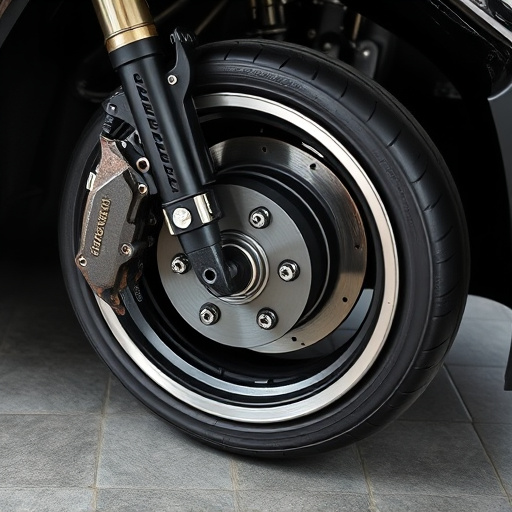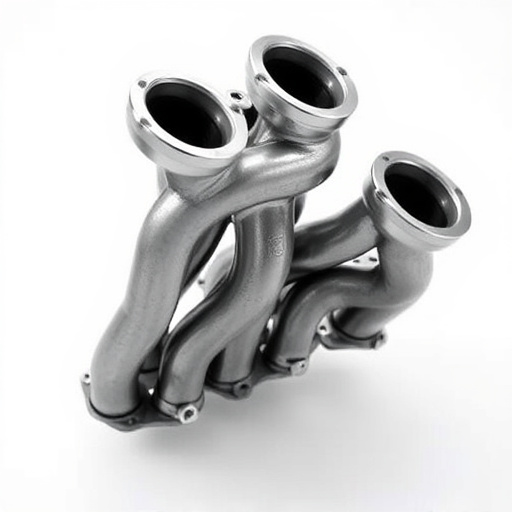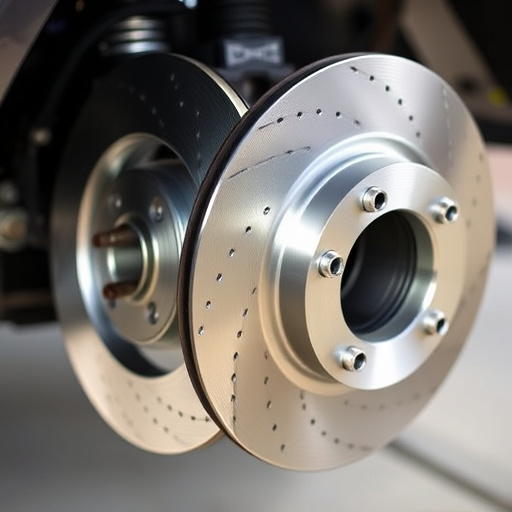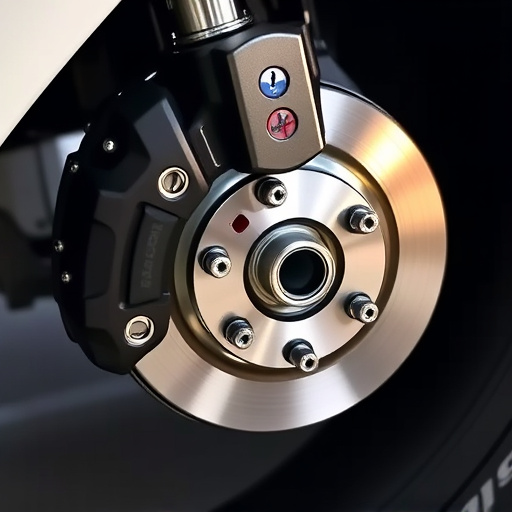Intercooler piping is a vital component in high-performance vehicles, regulating intake air temperature for optimal engine efficiency and reliability. By cooling compressed air entering the engine, intercoolers prevent heat losses, enhancing combustion and power output. Strategic design and placement improve overall performance, leading to better acceleration, speed, and optimized temperatures for various vehicle systems.
Intercooler piping, a vital component in high-performance engines, plays a crucial role in maintaining consistent intake temperatures. This article delves into the fundamentals of intercooler piping and its essential functions. We explore how this system optimizes engine performance by managing air temperatures, leading to enhanced power output. By understanding the key principles and benefits of intercooler piping, car enthusiasts can unlock their vehicles’ true potential.
- Understanding Intercooler Piping Basics
- Key Role in Engine Performance and Efficiency
- Optimizing Intake Temperatures for Enhanced Power Output
Understanding Intercooler Piping Basics
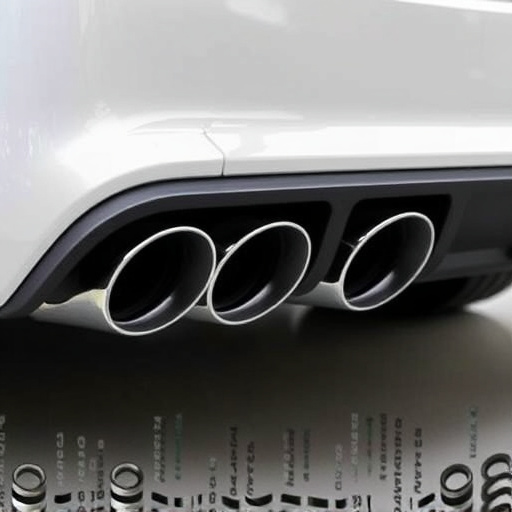
Intercooler piping is a crucial component of high-performance vehicles, particularly those with turbocharged or supercharged engines. Its primary function is to manage and regulate the temperature of air entering the engine, ensuring consistent and optimized performance. The system consists of a series of tubes, valves, and components designed to cool down the hot intake air before it reaches the engine. This process is essential as cooler air is denser, allowing for better oxygen uptake and combustion efficiency.
Understanding intercooler piping basics involves grasping how it integrates with the vehicle’s air intake systems. Cold air enters through muffler tips or air intake systems, flows through the intercooler, and then into the engine. The efficient design of these pipes ensures quick heat transfer from the hot intake air to the surrounding cooler ambient air, maintaining ideal temperature levels. High-performance parts like intercoolers are vital for maximizing engine output and reliability in demanding driving conditions.
Key Role in Engine Performance and Efficiency
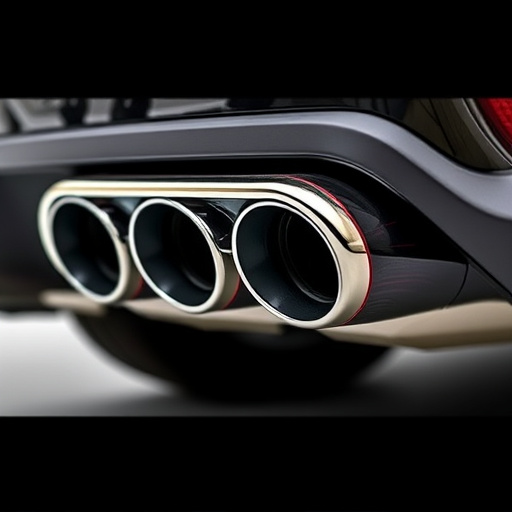
The intercooler piping plays a pivotal role in enhancing engine performance and efficiency, especially in high-performance vehicles. By ensuring consistent intake temperatures, it optimizes air density, which is crucial for efficient combustion. This simple yet effective system acts as a bridge between the air filter and the engine, regulating the flow of cooled air to meet the engine’s demands at various operating conditions.
This process is particularly beneficial in vehicles equipped with performance exhaust systems and high-flow performance air filters. The intercooler piping helps maintain a balanced intake temperature, ensuring that the engine receives the ideal mix of air and fuel for peak power output. Moreover, this efficient cooling system can complement suspension kits designed to enhance handling dynamics, allowing drivers to extract maximum potential from their vehicles in both performance and comfort.
Optimizing Intake Temperatures for Enhanced Power Output
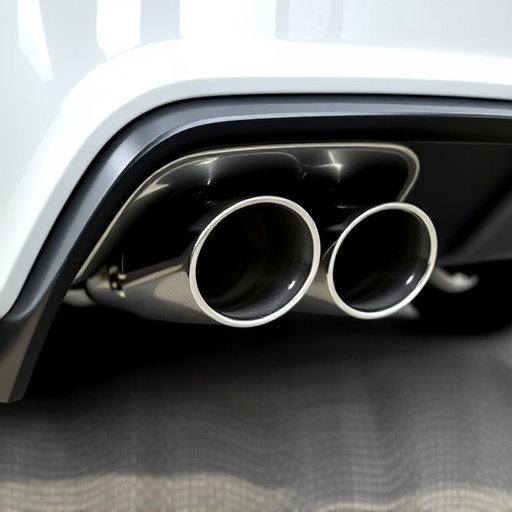
Maintaining optimal intake temperatures is key to unlocking a vehicle’s full power potential. Intercooler piping plays a pivotal role in achieving this by ensuring consistent and efficient cooling of the compressed air entering the engine. By reducing intake air temperature, intercoolers prevent heat-related performance losses, allowing for better combustion and increased power output. This is particularly crucial in high-performance vehicles where every horsepower matters.
The strategic placement and design of intercooler piping, often integrated with advanced cooling systems, contribute to improved overall engine performance. This not only enhances acceleration and top-end speed but also benefits other critical components like exhaust mufflers, suspension, and performance brakes by maintaining their operating temperatures within optimal ranges. Such optimizations are essential for maximizing the vehicle’s dynamic capabilities on both the track and the road.
Intercooler piping is an essential component in maintaining optimal engine performance. By efficiently managing intake temperatures, these systems contribute to enhanced power output and overall efficiency. Understanding and optimizing intercooler piping can significantly impact your vehicle’s capabilities, ensuring a cooler, more consistent air flow into the engine for improved results.

